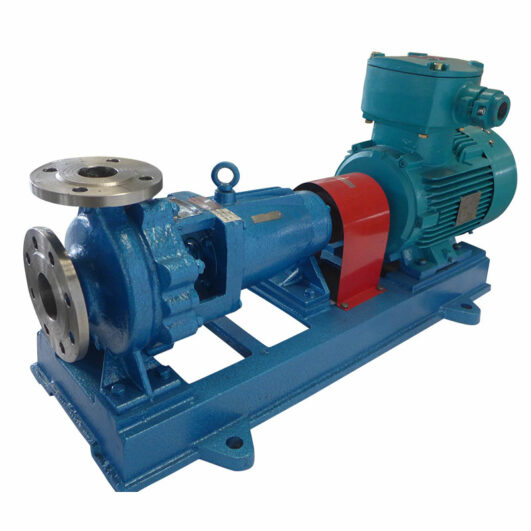Chemical pumps are mechanical devices specifically engineered to handle the unique requirements of pumping corrosive and abrasive fluids, such as acids, solvents, alkalis, and other hazardous chemicals. Unlike standard pumps, which may not withstand the corrosive nature of chemicals, chemical pumps are constructed using materials resistant to chemical reactions and erosion.
Functions of Chemical Pumps
- Chemical Transfer: The primary function of chemical pumps is to transfer chemicals from one location to another within industrial processes. This includes transferring chemicals between storage tanks, reactors, and processing units.
- Metering and Dosing: Chemical pumps are often utilized for precise metering and dosing applications where accurate volumes of chemicals need to be delivered at specific rates. This is crucial in industries such as water treatment, pharmaceuticals, and food processing.
- Chemical Injection: In certain industrial processes, chemicals need to be injected into systems or pipelines at controlled intervals. Chemical pumps are employed for this purpose to ensure precise and consistent injection rates.
- Handling Corrosive and Abrasive Fluids**: Chemical pumps are designed to withstand the corrosive and abrasive properties of chemicals without degradation. They are equipped with materials such as stainless steel, plastics, and specialized coatings to ensure durability and reliability.
- Safety and Environmental Compliance**: Chemical pumps play a vital role in maintaining safety standards and environmental regulations within industrial facilities. By securely containing and transferring hazardous chemicals, these pumps help mitigate the risk of spills, leaks, and environmental contamination.
Types of Chemical Pumps:
- Centrifugal Pumps: These pumps use centrifugal force to move fluids through a rotating impeller. They are suitable for low viscosity fluids and applications where a continuous flow is required.
- Diaphragm Pumps: Diaphragm pumps utilize a flexible diaphragm to displace the fluid. They are ideal for handling highly viscous or abrasive fluids, as well as applications requiring precise metering.
- Peristaltic Pumps: Also known as hose pumps, peristaltic pumps use rotating rollers to compress a flexible tube, pushing the fluid through the system. They are often used in applications where contamination or product purity is a concern.
- Gear Pumps: Gear pumps operate by the meshing of gears to transfer fluids. They are suitable for high-pressure applications and can handle a wide range of viscosities.
Conclusion:
Chemical pumps are indispensable assets in industries where the safe and efficient handling of chemicals is paramount. By understanding their functions, types, and applications, industries can select the appropriate chemical pump for their specific requirements, ensuring optimal performance, safety, and environmental compliance. As technology advances, chemical pumps continue to evolve, offering enhanced efficiency, reliability, and durability to meet the evolving needs of modern industrial processes.

